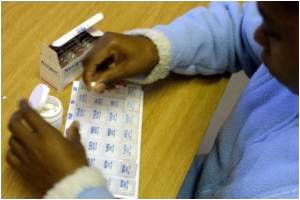Legislation that requires all couples undergoing assisted reproduction treatment (ART) to be screened for HIV and hepatitis is unnecessary, expensive, and potentially distressing for patients

"Most of these couples are in a stable relationship, and we believed that they were at minimal risk of contracting a communicable disease once the initial screen had showed them to be negative," said Ms Hughes. "However, we had no definitive proof of this and it is why we decided to carry out our study."
The researchers looked at screening results over a ten-year period from 1023 couples who had returned to the HARI clinic for testing after a 180 day quarantine of their surplus frozen embryos and gametes. These couples had been clear on their first screening. Following re-testing, the results were exactly the same – no seroconversion (the development of specific antibodies in response to infection) had taken place in the intervening period. They also examined the screening results of 555 male oncology patients who were clear on first screening and returned for 180 days follow-up testing. Once again, all of them showed the same viral screen status and remained clear of infection.
"Since the introduction of the new testing requirement, we have carried out 17,494 viral screen tests either before therapy or within 30 days of egg collection and have not come across a single seroconversion," said Ms Hughes. "While I understand that safeguards are necessary to prevent the transmission of disease through the use of human tissue, assisted reproduction is not the same as organ donation or blood transfusion. The main difference is that in IVF the donation is to your cohabiting partner, whereas in tissue donation it is to an unknown person.
"Our research has proved what we already suspected; that there is negligible risk of seroconversion in this group of patients. Given the physical, financial, and emotional investment that each couple makes in undergoing a cycle of treatment, it is unjustifiable to request testing at the time of each donation in order to assess such a minimal risk."
In requiring testing within 30 days of each cycle, Ireland has interpreted the Directive in a particularly restrictive way. Other countries such as Denmark have introduced more relaxed laws, which only require testing every two years. Since the introduction of the new law, all couples in Ireland have to pay, on average, an additional €160 per cycle of IVF or ICSI. This could cost in the region of €1.5 million per year, said Ms Hughes. At the clinic couples could have up to three cycles of treatment per year, and depending on the timing, this could mean each couple paying an additional €480 per year on top of the treatment cost.
Advertisement
Advertisement









